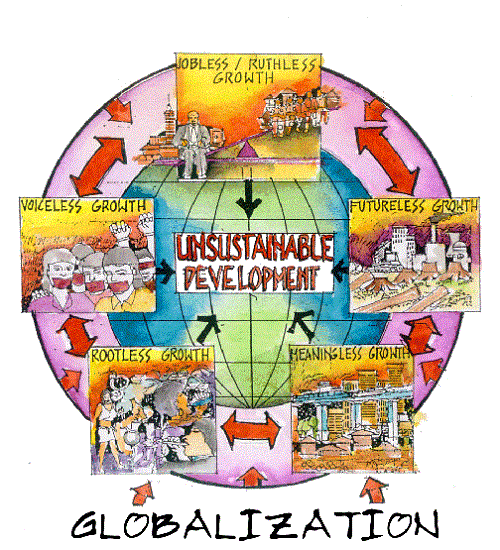Difference Between Globalization and Capitalism

Globalization vs. Capitalism
Globalization and capitalism are popular terms nowadays. While people assume that the two terms can be used interchangeably, this is not the case. Globalization is a general term that can be defined in many ways, while capitalism has a specific definition. It is incorrect to assume that globalization is synonymous with capitalism. In order to avoid confusion regarding these two terms, one should learn when and how the word ‘globalization’ became popular.
A significant term that preceded globalization was ‘corporate giants,’ which was first mentioned by Charles Russell. In the 1930’s, the word ‘globalization’ emerged, and was identified closely with education via significant human experiences. During the 1960’s, however, the term was adopted by social scientists and economists. Globalization can pertain to a lot of things. Over the years, the term has spawned contradicting, and even absurd, definitions. Thankfully, the United Nations has come up with a definition asserting that globalization should be viewed in an economic context. The United Nations defined globalization as free trade, which includes the removal of tariffs and other impediments to the free flow of capital, goods, labor, and services.
Economists, on the other hand, define globalization as the assimilation of national economies into one huge international economy via foreign direct investment, migration, trade, capital flow, and trade. Globalization goes hand in hand with modern technology to facilitate transactions and encourage free trade all over the world. Internet connectivity ensures that cross-currency, international transactions occur at a daily basis. This is where the term ‘capitalism’ comes into the picture.

Capitalism is defined as a system wherein economic distribution and production are owned by private entities in order to accumulate profit. Capitalism leans towards private ownership as opposed to government ownership. Capitalism also leads to the term laissez faire, which asserts that government control over markets is not necessary. Capitalism arose as an economic system way back in the 16th century. It replaced feudalism as the dominant economic system of Western countries, and was adopted by other countries during the 19th and 20th century.
Now, how are the terms globalism and capitalization related? The correct way to integrate these two terms would be to assert that globalization spawns capitalism. The removal of restrictions on free trade has encouraged privately-owned institutions to flourish. The widespread popularity of globalization has granted staying power to capitalism. As a result, many countries that previously rejected capitalism are slowly embracing it as a means of being incorporated into the global economy formed under globalization.
Globalization and capitalism always go hand in hand, but they cannot be interchanged. If one were to refer to the unification of different national economies into a single global economy and the advent of free trade, globalization would be the more appropriate term to use. Conversely, if one were to support private ownership over government ownership, then one pertains to capitalism. Both terms should always be used in their proper context.
Summary
- Globalization and capitalism are popular terms used to describe the economy.
- Globalization is a general term that can be defined in many ways, while capitalism has a specific definition.
- The term ‘globalization’ was first used in the 1930’s; however, it was only used in an economic context during the 1960’s.
- There are two important definitions of globalization. The first one was formed by the United Nations, and it defines globalization as free trade, which includes the removal of tariffs and other impediments to the free flow of capital, goods, labor, and services.
- The second definition is used by economists – they describe globalization as the assimilation of national economies into one huge international economy via foreign direct investment, migration, trade, capital flow, and trade.
- Capitalism is defined as a system wherein economic distribution and production are owned by private entities in order to accumulate profit. Capitalism leans towards private ownership as opposed to government ownership.
- Capitalism is encouraged by globalization. However, the two terms cannot be interchanged.
- Differences Between Fraternity And Sorority - January 8, 2014
- Differences Between Lucite and Plastic - January 7, 2014
- Differences Between Oil and Butter - January 6, 2014
Search DifferenceBetween.net :
Leave a Response
References :
[0]https://hmissbahapwhp6.wikispaces.com/Globalization
[1]http://jobsanger.blogspot.in/2011/10/wealth-in-america.html
